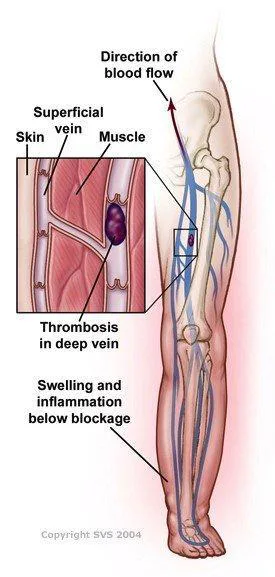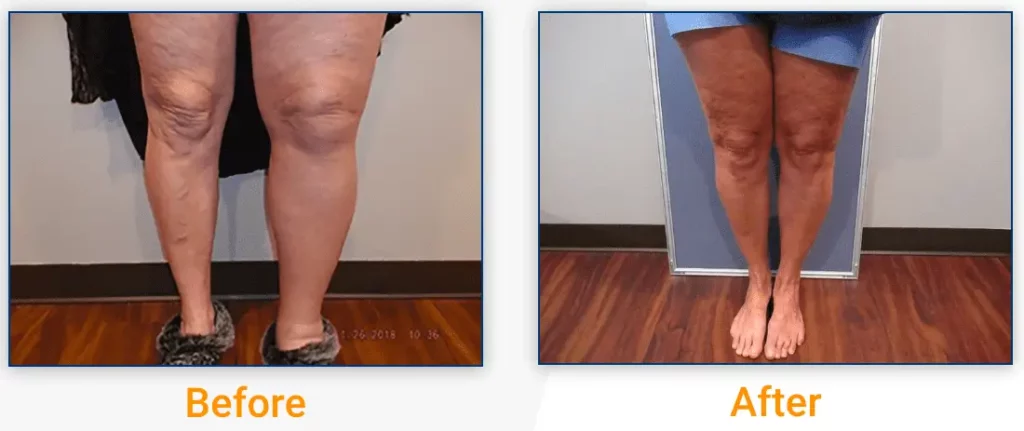Deep Vein Thrombosis (DVT)
Bloomfield Vein & Vascular PLLC
Diego Hernandez, MD
Vascular Surgeon located in Bloomfield Hills, MI
According to the Centers for Disease Control and Prevention, an estimated 900,000 Americans get deep vein thrombosis blood clots every year. Diego Hernandez, MD, and the medical staff at Bloomfield Vein & Vascular PLLC in Bloomfield Hills, Michigan, have the expertise to help you. If you’d like to talk to an expert about the different treatment options available for deep vein thrombosis, contact us.
We are at 43700 Woodward Ave #207 Bloomfield Twp, MI 48302. Book online or you may call at (248) 481-2100 to schedule a consultation with a board-certified vascular surgeon in Metro Detroit.


Deep Vein Thrombosis (DVT)
What is deep vein thrombosis?
Deep vein thrombosis, often known as DVT, is a serious medical condition where the veins that are located deep in the body become blocked, forming a blood clot. Although deep vein thrombosis can affect any deep vein, they most often form in the iliac veins, the veins of the leg in the groin or pelvis area.
If left untreated, deep vein thrombosis can be deadly if a section of a blood clot breaks off and travels to your lungs, where it can get stuck in the veins of your lungs.
Although anyone can get DVT, several risk factors can make you more prone to develop deep vein thrombosis, including:
- Heredity or family history
- Injury from a broken bone
- Surgery involving a spinal or general anesthetic
- Immobility due to lengthy travel, paralysis, injury or illness
- An anatomical predisposition such as iliac vein compression
- Pregnancy and during the six weeks after delivery
- A history of cancer or currently undergoing cancer treatment
Having a family history of DVT doesn’t mean you will get one too. It just means that you are predisposed to the condition.
Keeping that fact on your radar and doing what’s in your control like eating a healthy diet, not smoking, and staying active, may help you beat the odds.
What are the symptoms of deep vein thrombosis?
Unfortunately, half of the people who get deep vein thrombosis have no symptoms at all. However, some common symptoms include:
-
Leg swelling in one or both legs
-
Pain or discomfort in one or both legs when standing or walking
-
Skin on your legs which feels warm
-
Discolored or red skin on one or both legs
-
Swollen red, hard veins that are sensitive when touched
"*" indicates required fields
How is deep vein thrombosis treated?
The goal for initial treatment of deep vein thrombosis is to keep the blood clot from growing larger to give your body a chance to reabsorb it. This is most commonly done through the use of the blood thinners, also called anticoagulants.
Additional treatments are:
- Compression stockings
- Addressing any anatomical problems
- Removing the blood clot altogether
The highly trained medical team at Bloomfield Vein & Vascular PLLC in Bloomfield Hills, Michigan, is committed to helping you get to the root of vascular issues.
If you are suffering from deep vein thrombosis contact Bloomfield Vein & Vascular PLLC for an evaluation today. Book online or call today.

The above pictures show a patient who presented to our office with a LEFT lower extremity DVT and was told that her only treatment option was being on a blood thinner. After a thorough evaluation, we were able to safely remove the clot and restore normal flow within her lower extremity. She is no longer burdened by the significant swelling and symptomatology that she had developed with the initial DVT.

